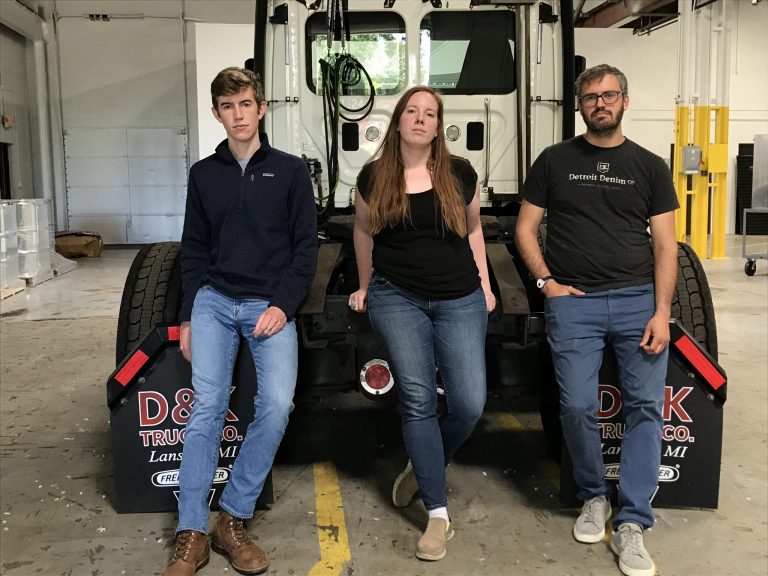Listen to the podcast with Paul Gross

Carbon capture has become one of the hottest sectors in climate over the past year. With every major industry seeking out technologies to decarbonize it’s become prevalent that we need more innovative solutions to fulfill the demand the market is asking for. In many cases large direct air capture technologies, like the one’s Twelve (formerly Opus 12) are building, or massive efforts to build better vehicles that run on batteries or hydrogen are so far out from true scale deployment that we need interim solutions to decarbonize every industry.
Transportation is one of the major sources of CO2 emissions...
This is why it’s become a key focus for major corporations with fleets to start investigating ways to decarbonize without having to front a significant amount of capital to purchase electric semi-trucks – which are still in the earliest of days.
Enter Remora Carbon:
Remora Carbon is building a device that captures the carbon emissions from a semi-truck. They sell the captured carbon dioxide to concrete producers and other end-users, helping companies earn new revenue while meeting their climate commitments.
How Remora Carbon Works:
Remora Carbon has developed a tailpipe fitted device for trucks that captures ~80% of the CO2 emitted. That captured carbon is then stored internally to the device and during a stop to fill up the truck’s tank the driver can unload the carbon that’s been stowed. This carbon is then resold by Remora to concrete producers or other entities that can utilize the captured carbon to produce new products.
As a way to incentivize and expedite the payback period for each of these units, Remora shares the resulting revenue with logistics companies that retrofit their devices on all of their trucks.
Their device is not to be confused with filters that capture particulate matter as their solution is specifically designed to capture CO2. Effectively they’ve scaled down the traditional large-scale carbon capture solutions that are used on the ISS to clean air or at power plants to now work on trucks.
Market Need:
If Remora succeeds in retrofitting their devices on the 2 Million semi-trucks in the US, they’d be able to capture the equivalent of ~340 Million Tons of CO2 every year. But to put it into context companies like Pepsi that have major sustainability goals – like most corporations today – see 40% of their annual emissions coming from their fleet. Turning these fleets into assets for the major corporations and making it easy for them to meet their sustainability goals makes this technology an easy sell.
Future Outlook:
Being one of the only companies actually building a tailpipe fitted device to capture carbon and in a position where in January their first units will be hitting the road makes me excited to see how quickly this technology can be scaled up to deliver significant carbon reductions. The exciting thing about their solution is the potential for more carbon offsets to be generated and genuinely deliver a huge impact by partnering with large fleet operators and logistics companies.
With fresh funding, contracts from Ryder and Cargil and a rapidly growing team it’ll be interesting to monitor how quickly they can scale their manufacturing capabilities through pilots to eventually retrofit entire fleets over the next few years.
About The Author

Swarnav has over 10 years of experience in the energy & climate tech space, holds 2 patents and is active in the tech, climate and media industries. He specializes in Product/Product Innovation as well as Go-To-Market and Growth Strategy.
By training he’s a Materials Engineer with a background in research from his time at Georgia Tech and University of Illinois (UIUC).
He founded TouchLight a utility backed energy company focused on developing IP for utilities and startups pushing electrification forward. He also serves as the appointed Chairman for the Town of Yorktown’s Climate Smart Communities Task Force, where he helps with drafting legislation and enabling sustainability efforts within the town.
Concurrently, Swarnav founded The Impact to help investors, emerging founders and driven climate enthusiasts discover and identify new climate-tech startups, technologies and opportunities before they hit the traditional media sources.

